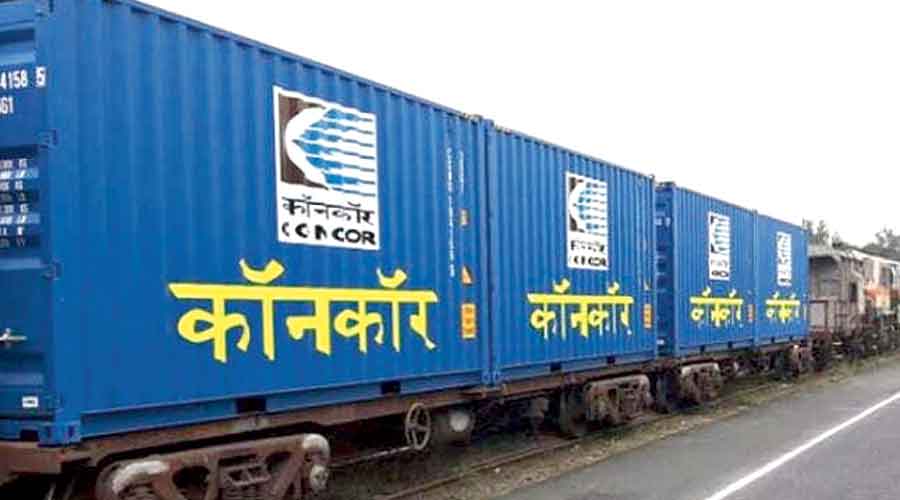The Congress has flagged multiple concerns, including an abrupt cut in a fee, linked to the proposed divestment in Container Corporation of India Ltd (Concor), a profit-making Navratna public sector unit and the market leader in which the Adanis have evinced interest.
“The Modi government is considering a change in the lease policy for industrial use of railway land. A change that will bring LLF (land licensing fee) to 2 to 3 per cent from the current 6 per cent,” Congress spokesperson Gourav Vallabh said.
On March 10, this year, the railways, which own Concor, came up with the new land licensing fee policy. Under this, the railways propose to levy an annual land licence fee at the rate of 3 per cent of the industrial land value per acre.
Piyush Goyal, the then railways minister, extended this policy to Concor and other private train operators who set up terminals on land leased from the railways.
Concor boasts the country’s largest network of 60 inland container depots. Land usage rights and terms have been a critical element in the selloff process for Concor.
The Modi government has approved selling 30.8 per cent out of its 54.8 per cent stake in Concor and transferring the management control to strategic buyers.
The annual report of Concor for 2020-21 says that the corporation has been paying a land licensing fee “at 6 per cent of land value” since April 1, 2020. The latest cut in the fee is being made within one year of the previous change.
The Concor annual report says it paid a land licence fee of Rs 652.84 crore for the year ended March 31, 2021 (against Rs 39.65 crore in the previous year, marking an increase of 1,546.51 per cent).
After the cut in March this year, the amount any prospective buyer of Concor will have to pay to the railways will be considerably less.
Sweetening terms for prospective bidders need not always involve foul play; it can be a business decision meant to attract more investors.
Besides, the Centre can contend that under the plan, it will get the money upfront (99 per cent of the amount) rather than have it paid over the entire period of the 35-year lease.
Vallabh, the Congress spokesperson, asked: “Once (Concor has been chosen) for disinvestment, why is the government considering changing the LLF and the lease period? Is the proposal to reduce the LLF an indirect way of handing over developed government land to private parties for the long term?”
Vallabh said farmers had given their land to the government for railway projects at a concession — even free of cost in many instances.
“How can railway land acquired from farmers be handed over to a private party for commercial use in a backdoor arrangement? This valuable land belongs to the farmers of our country and if it is not used by the railways, it should be returned to the original owners,” Vallabh said.
Hinting at who the buyer might be, Vallabh said: “It is of more significance when Adani Ports and Special Economic Zone Ltd says… it can easily acquire strategic target Concor. Who gave them this idea that they can easily acquire Concor?”
(Last month, Karan Adani, the CEO of Adani Ports, had said in response to a question during an earnings call that the company could easily raise debt to pay for the acquisition of Concor without stretching its balance sheet and impairing its
credit rating. “In our view, Concor is a very strategic acquisition and we do believe that raising funds and without stretching the balance sheet, we should easily be able to do that acquisition,” Adani had said.)
On Monday, Vallabh said: “The same group already has ports and airports; if Concor and its dry ports also go to them, they will have a monopoly over the export-import (sector) of the entire country. What ensures that they will not exploit this monopoly for commercial gain?”
In addition to providing rail transport for containers, Concor has expanded to managing ports and air cargo complexes and establishing cold chains.












